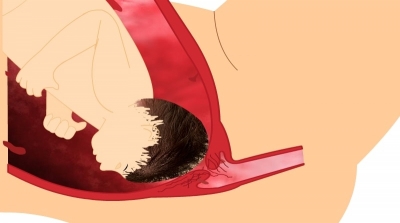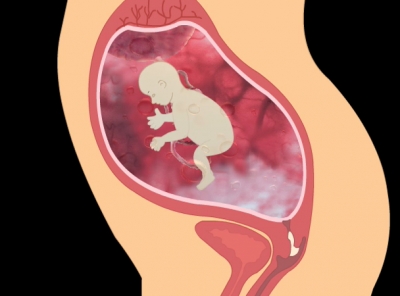Amniotic fluid index is an estimate of amniotic fluid present and is used to measure the wellbeing of the developing fetus. Amniotic fluid is generated by the maternal plasma and it serves as a cushion for the growing fetus. It also facilitates the exchange of nutrients, water, and biochemical products between mother and fetus. From the 16th week onwards when the kidneys of the fetus begins to function, the urine of the fetus also contributes to the quantity of the amniotic fluid. From around 25 ml during the 11th week, the quantity of fluid peaks around by 28th to 32 weeks, after which it may start decreasing to almost 400 ml by 42 weeks. Thus non-functioning or abnormalities in the genesis of the fetal kidneys can be one of the reasons for low amniotic index. Other causes for low AFI can range from as simple a condition as dehydration of the mother to more complicated conditions like leakage of the amniotic fluid because of premature rupture of membranes. Babies with too little amniotic fluid can develop contractures of the limbs, clubbing of the feet and hands, and also develop a life-threatening condition called hypoplastic lungs. Low AFI index may also cause the baby to have chord around the neck. Maternal complications may cause low amniotic fluid. Some factors such as hypertension, diabetes, dehydration, preeclampsia, and chronic hypoxia in a woman can have an effect on amniotic fluid levels.
The majority of pregnancies however proceed normally and the baby is born healthy. So when the Doctor notices that your AFI index is low compared to the normal for that gestational age. IF you are early on in pregnancy like say 31 to 32 weeks, she may keep you in observation and regularly monitor the AFI levels. Do a color doppler and an NST. If the low AFI levels are found closer to due date, then they may opt for induction or C-section.
Meena got to learn a lot about low AFI from her Doctor. Because Meena’s AFI was not very low, she was asked to drink more water an keep herself hydrated and was prescribed some protein capsules and was asked to come back. After a week, she felt better and her AFI also improved and she delivered a beautiful baby girl at 38 weeks.






